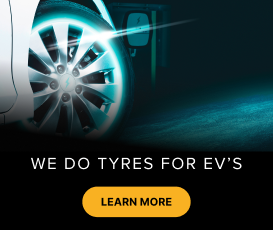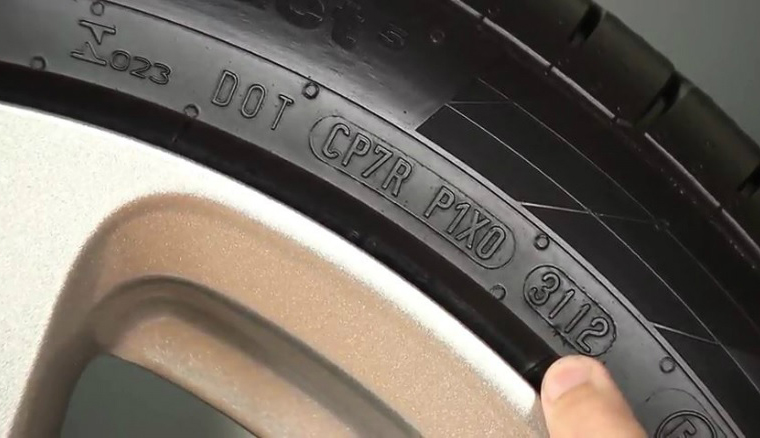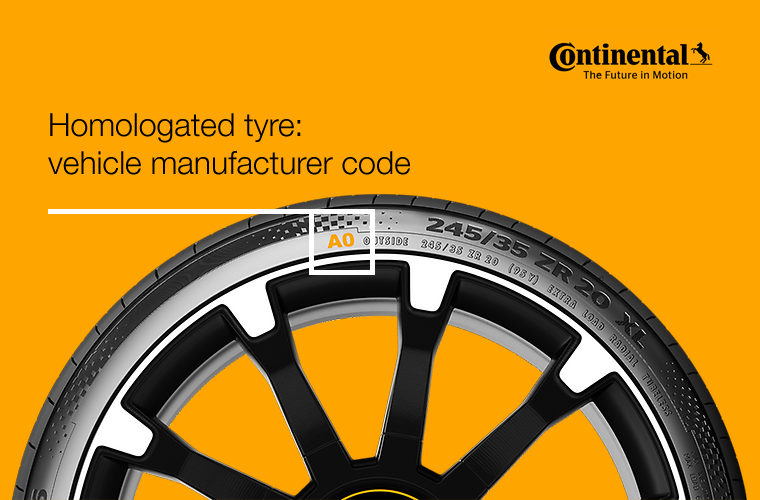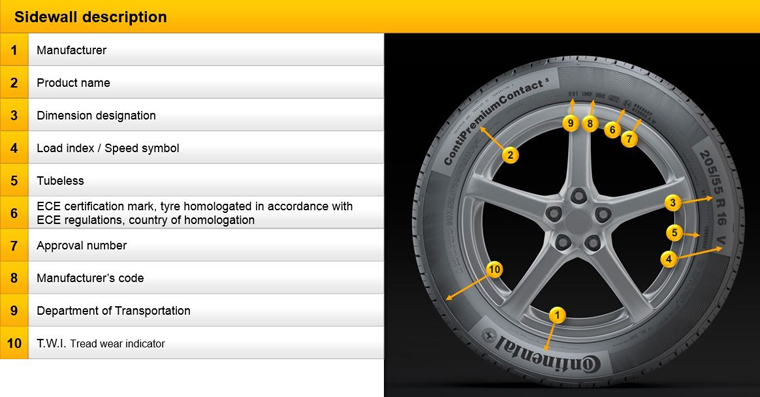There’s a lot of information contained on the sidewall of every tyre. Alongside the brand name – for instance, Continental – and the product name (such as “ContiPremiumContact 5”), the remaining information appears to be a complex code and can be confusing. So what does it all mean?
Many of us know how to find the tyre size – for example “205 55 R 17” – but we tend to ignore the rest. You probably shouldn’t if you care about the car you drive and want to get the most out of it. If you drive a Mercedes-Benz, Audi, BMW, Mini, Land Rover, Jaguar, Tesla, Porsche or even a Maserati and want to fully benefit from the unrivalled characteristics of a specifically approved premium tyre, such as a Continental SportContact 6 you definitely shouldn’t.
Tyres approved by car makers are called “homologated”
The industry technical term for a tyre that’s been developed and approved by a vehicle manufacturer is “homologated”. The car manufacturer is identified on the tyre sidewall using their specific code. Some of them are more easy to decode – Mercedes, for example, is MO, Audi is AO, but others aren’t. N1? No, not Nissan – it’s actually Porsche. Homologation is a bit of a mouthful and, let’s face it, the majority of drivers aren’t familiar with the term, let alone given it too much thought.
| Manufacturer | OE Key |
| Audi | A0, A01 |
| Audi quattro | RO1, RO2, R03 |
| BMW | * |
| BMW / Mercedes | *MO |
| BMW / Mercedes Runflat | *MOE |
| Jaguar | J |
| Land Rover | LR |
| Maserati | MGT |
| Mercedes-Benz | MO, MO1 |
| Mercedes-Benz Runflat | MOE |
| Porsche | NO, N1, N2 |
| Tesla | TO |
Car tyre sidewall markings quick guide
Homologation results in the right tyre for your car
It goes like this: a tyre manufacturer like Continental designs, extensively tests and then produces a generic tyre model for sale. Continental’s ContiPremiumContact 5 is a great example – a high quality premium tyre that can be used on a wide variety of car makes.
It’s at this point that prestige car manufacturers start testing this generic tyre to see how it will perform specifically with their vehicles. They look at a wide range of criteria including weight, grip, performance and handling. What they’re looking for is whether the tyre helps to bring out the attributes – handling for example – that the car itself has been engineered for.
The feedback is then taken on board by the tyre manufacturer, modifications are made and – at the completion of the process – the homologated version of the tyre is approved by the vehicle manufacturer, and then produced, carrying the car manufacturer’s homologation code on the tyre sidewall. This thorough and painstaking process can take up to two years which is why the selection of homologated tyres is limited mainly to premium tyre manufacturers, like Continental Tyres. The result? Premium tyres that work in perfect harmony with your car.
What will you notice with homologated tyres?
Imagine you’ve bought a three year old Audi. You bought it because you love the car, its stiff suspension, tight handling and great acceleration. And then – after a year – you need to change the (generic) tyres. Your local tyre fitter recommends homologated ContiSportContact 5P – approved by Audi for your car. You make the purchase.
So, what do you notice? More than anything else, it’s that the things you love about your car already are now so much more noticeable. The ride feels even better, the handling feels that much tighter and – when you put your foot down – you really experience that oomph feeling! And of course there’s the superior feeling of grip that premium tyres provide, offering sharper, quicker braking.
Are homologated tyres safer than generic tyres?
All generic non-homologated premium tyres, such as Continental’s, are superbly engineered to provide you with optimum handling, grip and braking performance, but compared to their bespoke homologated versions for you specific car? It’s no competition. Homologated tyres are a better choice and specifically built to the vehicle manufacturers specific requirements.
There are instances where technologies are added to the tyre to fulfil the vehicle manufacturer’s needs, where tread patterns are modified, or the tyre’s rubber ingredients are changed to make sure the tyre works exactly how the manufacturer intends.
Once approved, the vehicle will be set up to the tyre’s specification, ensuring the suspension works in harmony with the tyre to enhance the ride, handling and acceleration. So if you truly want to get your car to the original performance characteristics it is capable of, investing in the correct homolagated tyres is an absolute must.
(H2) Next steps to making an informed tyre choice
If you’re still unsure of which tyres – homologated or generic – are ideal for your car, and want expert advice on the best ones to buy, contact us today for impartial advice and expert fitting. At Advance Pitstop we take tyre safety extremely seriously, so pay a visit to your nearest branch. Our expert tyre care professionals are waiting to take you through the options. To find your nearest Advance Pitstop branch please look at the top of this page.





